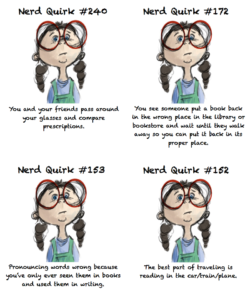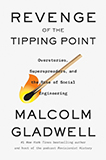In my post about the 2010 World Cup Murals, reader Nina left a comment to correct my grammar:
It’s “I COULDN’T care less about soccer.” “I can care less” implies that you do in fact care about soccer and it would be possible for you reduce the amount you care. Make sense? 🙂
This was particularly interesting, because I really did think that “I could care less” is a form of sarcasm; hence, my grammar was correct (in my eyes).
Perhaps this mistake owes itself to my not being a native English speaker. But at the same time, this excuse holds no merit when you take into account the fact that I am currently much more comfortable with English than Korean.
However, I still have trouble recognizing common idioms and phrases because I spent the first 8 years of my life in another country, speaking another language. I have picked up a lot through Google and immersement into the (American) English language, but I confess that sometimes I do feel like an idiot when someone uses a not-so-literate piece of jargon and I have to nod and pretend I know what he/she said, or just try figure it out myself.
Hence, the “I could care less” issue. My friends are a sarcastic bunch. I myself am a sarcastic person (I didn’t earn the nickname “Daria” in high school for no reason). I just assumed that it was a sarcastic way of expressing your severe disinterest in a subject.
Are there non-native English speakers among my readers who face similar problems when it comes to deciphering idioms or common phrases, or distinguishing between sarcasm and proper grammar? Or is this confusion also shared by native English speakers?






 I like books, gadgets, spicy food, and art. I dislike shopping, hot weather, and the laws of entropy. Although I am a self-proclaimed computer nerd, I still have a love for handbags and makeup... and I am always teetering on high heels. To learn more about me, visit the
I like books, gadgets, spicy food, and art. I dislike shopping, hot weather, and the laws of entropy. Although I am a self-proclaimed computer nerd, I still have a love for handbags and makeup... and I am always teetering on high heels. To learn more about me, visit the 


0_o V
hhee
I’ve noticed that this phrase is a little regional, too, and both can be correct, just like if the local speech goes for the positive or the negative affirmation to questions. For example, asking "You don’t want it now?" can elicit a "yes" or a "no", depending on who I’m talking to, and they both can mean that they don’t want it now. Or not.
This is a really interesting post 🙂
Firstly – don’t feel bad at all – it’s certainly not anything to do with you not being a native English speaker. As I said on the other post, it seems to have become a real Americanism to say "I could care less". It’s so commonplace nowadays. I believe that after certain phrases are in regular use for a certain period of time, they become acceptable grammar – contractions, for example, or phrases like "Got Milk?".
Secondly – you make an interesting point on the sarcasm front, and it really highlights the difference between English-speaking countries and their use of language and humour. In the US, sarcasm is usually as simple as saying something that is the opposite of what you mean, with a tone of voice that conveys that you are being sarcastic.
In the UK and Australia, however, sarcasm is much more commonplace but with a gentler tone to it and more focus on the particular situation than the use of sarcasm itself.
I think that’s why British and Australian comedy is remade in the US so that it can have more widespread success, as the majority of it doesn’t translate too well between different places. Likewise, there are American comedies that haven’t had as much success over here – Daria wasn’t that popular, and I think a lot of us just don’t get Tina Fey, for example.
I went to school with a number of Cantonese and Japanese girls, and it always baffled me how they were able to not only pick up a new language, but a completely different grammar system and alphabet as well. Big respect to you for that!
I wouldn’t take Nina’s correction too seriously. I think it’s equally likely to come across someone who says "could" as it is to hear someone say "couldn’t." I guess Nina is just taking it upon herself to start the revolution and get everyone to switch over. One blog post at a time.
(P.S. I just found your blog a week or two ago and have really been enjoying it.)
Wow, I can’t believe my comment earned an entire post! Please know I didn’t mean anything maliciously. It’s a long-standing pet peeve of me (we all have them!).
Viva La (grammar) Revolucion!
Edit: "…pet peeve of mine." 🙂
Idioms and common phrases aren’t much of a problem for me anymore. Similar to you, I moved to the US when I was 10 (and now I’m 15) and after a while I sort of got "with the program". I think it helps if you read, type of environment you live in and how regularly you interact with others.
Actually … most native speakers I know say it exactly the way you did. "I could care less."
As a both semi-logical person, but also a sarcastic one, I say "couldn’t care less". It seems more precise to me. But then, I was called pedantic on Facebook one day.
Haha, read this, which I just came across:
http://dictionary.reference.com/help/faq/language/g09.html
@Sarah — haha, thanks!
I’ve always felt the phrase “I could care less” to be sarcastic, and I am a native English speaker, although I can understand why it is contentious since sarcasm is a complicated thing, and the more common form of sarcasm would be to say something like “Wow! I am really interested in that! Please tell me more!!”. I do hear other forms of sarcasm spoken such as “Yeah right, it’s not like I’m broke or anything”, but not as often, and rarely written, which makes sarcasm usage difficult to research.
That dictionary.com FAQ explanation mentioned by @Sarah, however, argues that the original phrase “I could not care less” is already “quite sarcastic”. This is not true. The phrase “I could not care less” is not sarcasm. It is a hyperbole (i.e. overstatement / exaggeration). It is similar to saying something like “I’m so hungry that I could die”. Some people confuse hyperbole with sarcasm. They are both forms of verbal irony, but they are quite different from each other.